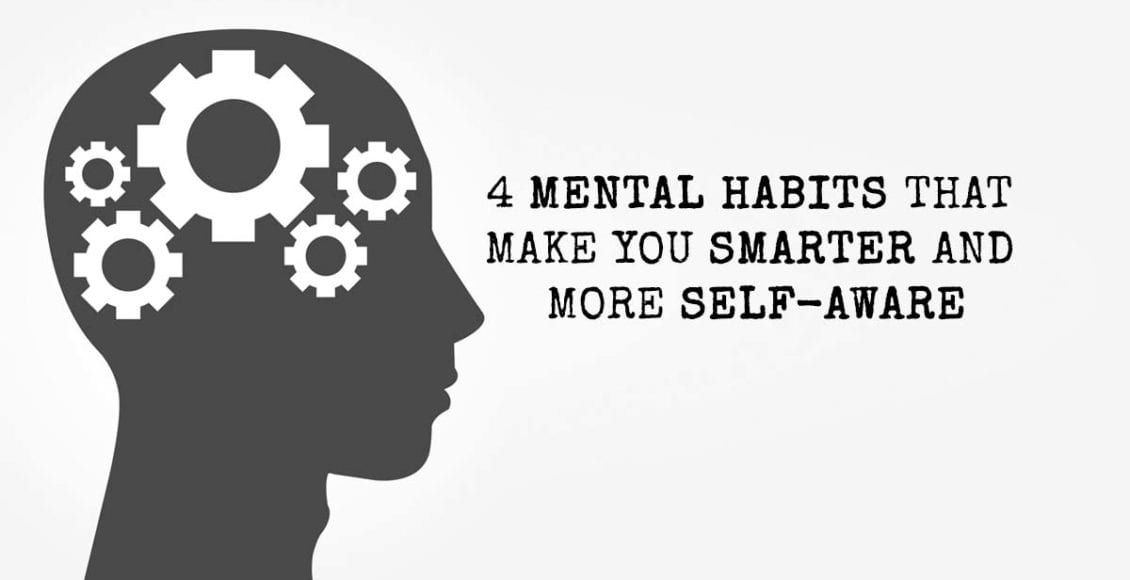“For me, I am driven by two main philosophies: know more today about the world than I knew yesterday and lessen the suffering of others. You’d be surprised how far that gets you.” ― Neil deGrasse Tyson
What do you know today that you didn’t yesterday? Last Saturday? Last year?
Have you fallen into an intellectual rut?
Awaken your mind, and reinvigorate your intellectual curiosity. These four simple habits can help your brain to expand beyond your wildest expectations:
1. Intentional Learning
– Many of us would argue that we learn continuously. We read books. We stay up to date on politics. We travel to new places and do new things. It is wonderful to have a life that incorporates learning passively in the context of other activities – but when was the last time you went out of your way to try something new for the sake of increasing your knowledge base? When we learn as a result of more important ventures, we tend to stay within our comfort zone. We choose books that reinforce our current mindset. We travel to places we already know quite a bit about. We grow, but do we really change? Once a month, commit to doing an activity that is outside of your comfort zone. Do this with the sole intention of learning. Read a book by a politician you disagree with. Attend services at a church you don’t belong to. Take a class in a subject that would surprise your loved ones. You might just unlock a new and unexpected part of your mind this way.
2. Courageous Questioning
– Most of us neglect to question anything at all. We take the world as it is, and we accept people at their face value. We don’t dive any deeper, and we live complacently. We may never find out what exactly we’ve missed out on – and this is a tragedy. Start asking hard questions. Ask them of your family, your friends, your co-workers, and your political system. A difficult question does not need to be confrontational or offensive – it just has to challenge the mind. Ask your children what they’d change about the world, if they had the power to change one thing. Ask a local politician how a controversial bill might affect your own family. Ask your boss what their greatest regret – and greatest triumph – have been in their career. Then, truly listen to the answers. Form more questions. Dig even deeper. “It is not that I’m so smart,” claimed Albert Einstein, “but I stay with the questions much longer.”
3. Immersive Listening
– As Chuck Palahniuk stated, “People don’t listen, they just wait for their turn to talk.” While active listening is a great tactic for making conversation and ensuring that your partner feels heard, it still keeps the focus on you, yourself. Instead, try listening in a passive and immersive way. Lose yourself in their words. Don’t think critically. Don’t comment, relate your own experiences, or decide whether you agree or disagree. Just listen. Hear them out. Don’t react – internally or externally – until your partner is completely finished speaking. Apply this strategy to any monologue you care about – a political speech, a TED Talk, or even your child’s rambling account of their day at preschool. The more we absorb, the more we learn. The more we listen, the more open and powerful our minds can become.
4. Active Observation
– You may already see everything around you – but do you really notice it? Most of us observe our world in a passive way, taking note of only the things we think pertain to us directly. Spend ten minutes today observing your world with a critical eye, instead. Notice the small things. Analyze the everyday dynamics – global, interpersonal, societal – that normally pass you by. Think about them on a deeper level. Consider your own reactions and preconceptions. Why does the world work this way? Why do you see things the way that you do? What does it say about your character? We often look inward to increase our sense of self-awareness. This is a valuable practice, but it fails to account for the context of our environment. We don’t exist in a vacuum. This can result in missing pieces of our self-image. You’ll be surprised at what you can learn about your inner world when you make an effort to shift your focus outward.
“Live as if you were to die tomorrow. Learn as if you were to live forever,” said Mahatma Gandhi.
Don’t limit yourself by fear or pure inertia. Grow your brain. Grow your sense of self. Be proud of the person you create.



